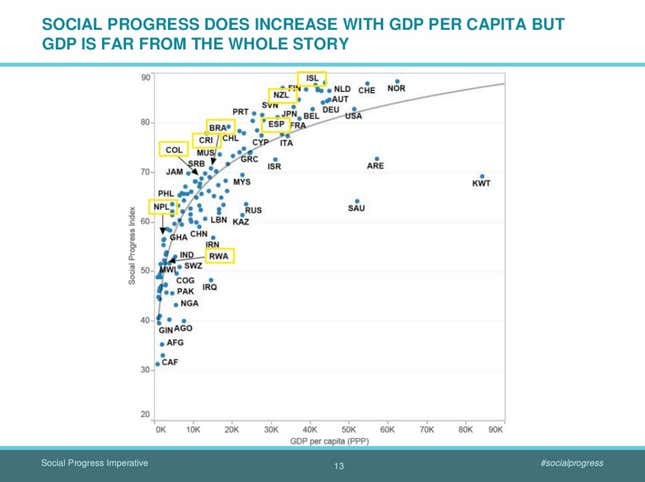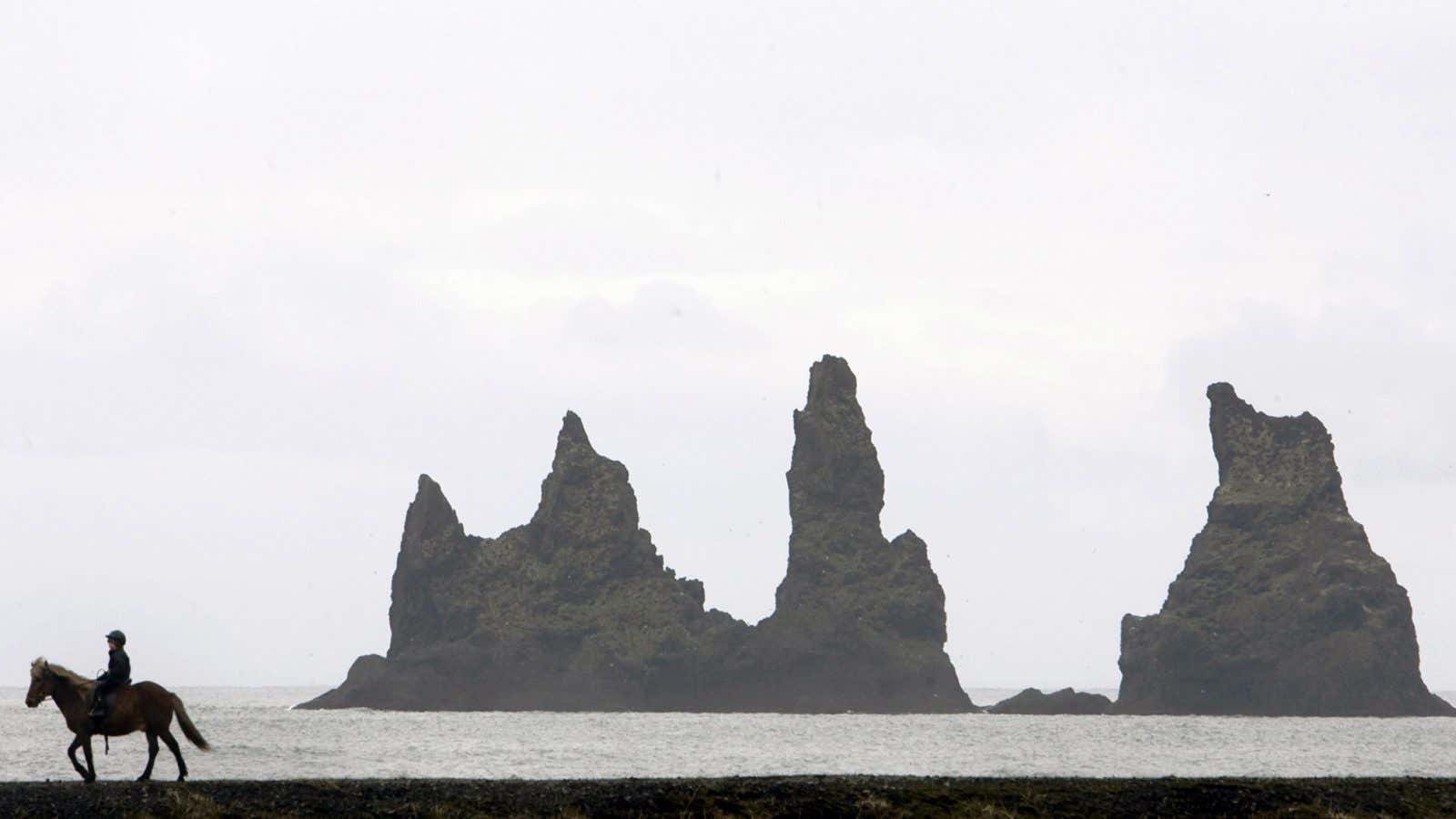Reykjavik
Michael Porter, a Harvard economist who made his name working on ideas around competition, has come to the capital of Iceland to talk about social process and how to measure it. Here at a conference on the topic, he reminds the audience that economic indicators—while we’re very used to measuring them—only tell part of the story.
From initial research, he says, there’s one key area where many societies (and not just poor ones) fall down: providing their citizens with enough opportunities to change and better their lives. This, he says, is a crucial but elusive ingredient to a smoothly functioning society—or what, at the individual level, one might call happiness.
He has come to Iceland, which—like many of its Scandinavian neighbors—consistently tops happiness charts, to launch his “Social Progress Index,” a new scale for measuring how well societies are functioning.
The index is based on three key areas, broken into more granular layers. Basic human needs and “foundations of well-being” are the first two, and indeed, many societies have in recent decades improved access to the basic healthcare, food, and education that form that base layer, Porter said. But if people in a society—no matter how well it’s doing—don’t feel able to improve themselves or their lives, they won’t be happy. For that, they also need a society that fosters freedom, access to advanced education, tolerance, and personal rights, he argues.
We’ve been trying to work out how to live since forever. Where Porter’s index differs from predecessors is in stripping out all financial indicators. In the past, Porter said: “The idea has been that social progress happens if we can improve economic progress. If we increase GDP per capita… life gets better.” That’s true, he said, but it’s not enough:

While there’s a strong correlation between economic success and social progress, “we also found that sometimes it didn’t seem to work. Just because a country was improving economically, just because GDP per capita went up, didn’t necessarily translate into a better society.”
The Arab Spring was uppermost in Porter’s and his fellow researchers’ minds. ”[H]ere we had a number of countries…that were really burning up the track in terms of economic progress, [with] good numbers economically, but yet people were in the streets, unhappy with their circumstances,” he said. (On the chart above from Porter’s presentation, you can see Norway scoring high on both GDP and social progress, but Kuwait high on GDP only.)
Beginning in the 1930s, society got used to measuring social progress using gross domestic product, which led to prioritizing economic effort and success over everything else. That problem was identified in the 1990s, prompting economists Mahbub ul Haq and Amartya Sen to devise the Human Development Index. Porter says such measures still included too much focus on money. By separating them completely, and bringing all the other “silos” of research on what makes lives better into one place, he’s hoping to get a clear, practical view of what actually works.
Northern soul
There aren’t yet any answers. But that’s where Rejkyavik comes in. The city said in April it would be the first place to implement the SPI, feeding back data to researchers to help them refine their work. Dagur Eggertsson, Reykjavik’s mayor, said the city spends time both collecting data and thinking about happiness, but the two aren’t always connected. To begin the collaboration, they’ll feed all the data they already collect to Porter’s team, which, he hopes, will help identify gaps and areas the metrics are missing out. What Reykjavik has to impart could also, in turn, change the index.
“What we measure is very often what we strive for, so it’s very important that we get that right,” he said.
Icelanders’ happiness was clearly affected by the banking crash post-2008, and presumably by a recent political scandal which saw the prime minister step down because of his implication in the Panama Papers leak.
But the people’s fury is “a very healthy thing,” the mayor said, since it shows that democracy is alive and well.
The other keys he identified to happiness on the island: equality and women’s rights; good schools; and “great swimming pools.“
